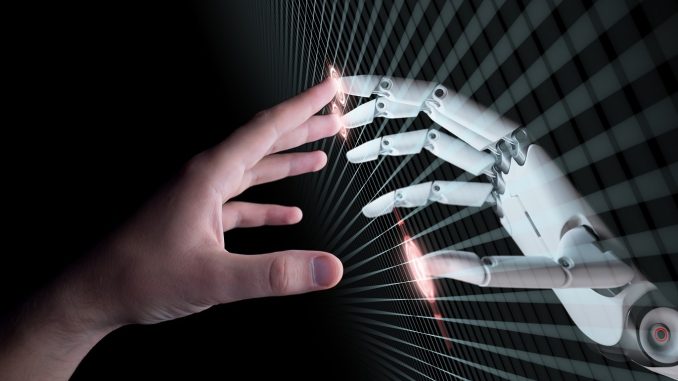
Are robots taking over our jobs? It’s a question that has been on everyone’s minds as technology continues to advance at an unprecedented rate. From self-driving cars to automated manufacturing processes, it seems like there is no limit to what machines can do. But what does this mean for the future of work?
In this blog post, we will explore the impact of rapid technological progress and delve into the potential transformation and economic growth that automation can bring. We will also address some of the societal moonshot challenges that could be solved with the help of robots. However, it’s not all smooth sailing – there are challenges hindering the full potential of automation that need to be considered.
We will then take a closer look at job trends in the age of automation. While certain occupations may experience declines, new opportunities are also being created as automation becomes more prevalent. We’ll discover how automation can complement human labor rather than replace it entirely.
Adapting to the workplace of the future is crucial if we want to thrive in an automated world. We’ll discuss developing new skills for success, navigating occupational shifts and career changes, as well as understanding how workplaces and workflows are evolving.
Of course, with any major change comes challenges. We’ll explore wage pressures and economic implications in a world where machines perform tasks once done by humans. Additionally, we’ll examine existing workforce challenges and offer insights into what might lie ahead.
So join us on this journey into our increasingly automated world! Discover how you can stay current on AI and automation developments while embracing change without fear. The future may be uncertain but one thing is clear – robots are here to stay! Let’s dive deeper into “Robots in the Workplace: The Future of Automation and Jobs.”
The Impact of Rapid Technological Progress
In today’s fast-paced world, technological progress is happening at an astonishing rate. From artificial intelligence to robotics and automation, these advancements are transforming the way we live and work. The implications of this rapid progress cannot be understated.
One potential outcome of increased automation is the transformation and economic growth it can bring. With robots taking over repetitive tasks, humans can focus on more complex and creative endeavors. This shift has the potential to increase productivity, drive innovation, and spur economic development.
But it doesn’t stop there – robots could also play a crucial role in addressing societal moonshot challenges. Whether it’s finding solutions for climate change or improving healthcare access, machines have the ability to tackle problems with efficiency and precision that humans alone may struggle with.
However, despite these promising possibilities, there are challenges hindering the full potential of automation. Concerns about job displacement loom large as workers fear being replaced by machines. Additionally, ethical considerations arise when discussing issues such as privacy invasion or biases in algorithmic decision-making.
As we navigate this era of rapid technological progress, it becomes essential to find ways to harness its benefits while mitigating its drawbacks. By understanding both the opportunities and challenges that come with automation, we can shape a future where technology serves humanity rather than replaces it. So let’s embrace this transformative time and explore how robots will continue to reshape our workplaces in profound ways!
Potential of Transformation and Economic Growth
The rapid advancement of technology has the potential to transform industries and drive economic growth in unprecedented ways. As robots become more sophisticated and capable, they can take on tasks that were previously reserved for humans. This shift towards automation opens up new possibilities for increased productivity, efficiency, and innovation.
By harnessing the power of automation, businesses can streamline their operations and optimize their workflows. Robots can perform repetitive or dangerous tasks with precision and accuracy, reducing the risk of human error and improving overall quality. This not only improves output but also frees up human workers to focus on more complex and creative endeavors.
Moreover, automation has the potential to create entirely new industries and job opportunities. With advancements in robotics technology, there is a growing demand for skilled professionals who can design, maintain, program, and operate these machines. This creates a ripple effect throughout the economy as new businesses emerge to support this expanding field.
Additionally, automation allows companies to scale their production capabilities without significantly increasing labor costs. By utilizing robots instead of hiring additional employees during periods of high demand, businesses can remain competitive while keeping operational expenses in check.
Furthermore, automation has the potential to address societal moonshot challenges such as healthcare accessibility or climate change mitigation by enabling faster scientific progress through data analysis or precise medical procedures through robotic surgery.